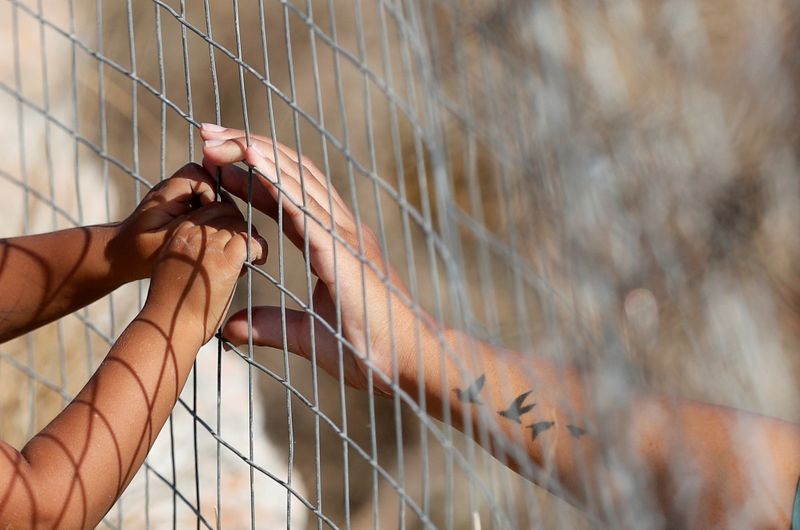By Gabriela Baczynska
BRUSSELS (Reuters) - The European Union's executive launched a contentious plan on Wednesday for overhauling broken migration rules to resolve years of bitterness and provide a better welcome for refugees fleeing the Middle East and Africa.
The most sensitive element would de facto oblige each state to host some refugees - something eastern nations Poland and Hungary are dead against - under "mandatory solidarity".
A country would receive 10,000 euros ($11,750) from the bloc's budget per adult taken in.
"We need these people because we are an ageing society," said the top EU migration official Ylva Johansson.
Endless feuds over where to locate people have caused bad blood between the Mediterranean-shore countries where they mainly arrive, the reluctant easterners, and the richer northern states where many of the newcomers aspire to live.
In 2015, more than a million people made it to EU shores, overwhelming security and welfare networks, and fomenting far-right sentiment.
"Migration is complex, the old system to deal with it in Europe no longer works," said European Commission President Ursula von der Leyen. "Moria is a stark reminder," she added, referring to a Greek migrant camp destroyed by fire this month.
The Commission plans would scratch a rule that the first country of arrival be responsible for asylum requests, which put too much burden on Mediterranean nations.
Under the proposal, those arriving would be assigned to countries based on family links, history of education or work, or having a visa from a member state.
According to the Commission, the EU now receives up to 1.5 million net new foreigners coming legally to live and work per year, compared to only 140,000 asylum seekers arriving irregularly.
The plan was criticised by international Catholic charity Caritas, which said it could harm human rights, dilute legal safeguards and lead to more detentions.
It also took flak from countries who would prefer to talk about tightening borders and asylum laws.
"We believe that the European Union and its member states must cooperate in keeping the looming migration pressure outside our borders," said Hungarian government spokesman Zoltan Kovacs. "Hungary does not support obligatory distribution."
'MANDATORY SOLIDARITY'
But, highlighting the persistent divisions, the proposals won approval from Malta. "Returning those with no right to asylum is crucial. Agree that solidarity must not be optional," said Prime Minister Robert Abela.
The 450-page proposals https://ec.europa.eu/info/publications/migration-and-asylum-package_en spanning five different pan-EU laws put emphasis on sending back those who fail to win asylum.
Intended to be in place from 2023, the plan also aims to open more legal routes for migrants, and work better with countries hosting people before they reach Europe.
It would also put EU countries with external borders under closer monitoring to stop illegal pushing back of people after reports of such action by Hungary, Croatia, Greece and Malta.
People saved at sea would be relocated in the bloc - rather than sent back - with charities not criminalised for rescues.
At times of regular immigration, EU states would be obliged to help under the new idea of "mandatory solidarity" by relocating or sponsoring returns, or offering material assistance on the ground in arrival countries.
If, however, a country were under major pressure, it could seek to activate a crisis mechanism under which EU peers would be obliged to take people in or send them back.
Returns commitments that fail to materialise in eight months - which national migration experts and some EU officials admit is tight - would transform into a relocation obligation, anathema to the easterners.
"Bottom line for us is that we might, and very probably will, end up with mandatory relocation," said a senior diplomat from one of the eastern EU countries. "That is a no go for us."
That means the proposal faces an uphill battle despite having German Chancellor Angela Merkel's backing.
Merkel suffered electoral setbacks after opening Germany to Syrian refugees back in 2015. But in a sign of changing mood, German mayors now offered to take in Moria refugees and protesters even chanted: "We have space!".

A Gallup poll https://news.trust.org/item/20200923053835-sbak4, however, showed the world was becoming less tolerant of migrants, with EU states Hungary and Croatia near the top of the index https://news.gallup.com/poll/320678/world-grows-less-accepting-migrants.aspx of the least-accepting countries.